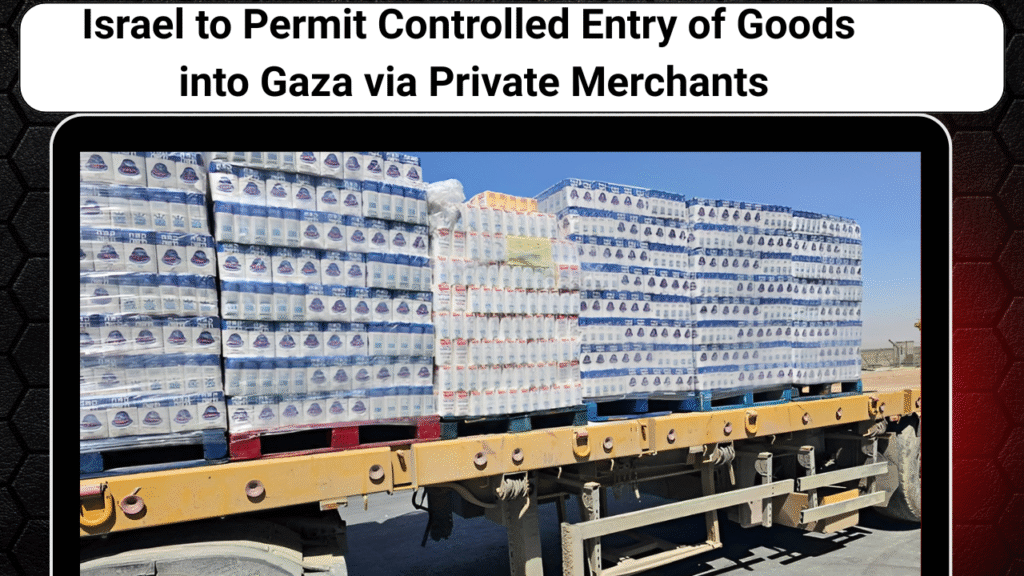(Reuters) – Israel has announced that it will begin allowing a limited and controlled flow of humanitarian goods into Gaza through local merchants, according to an official statement released Tuesday by COGAT, the Israeli agency responsible for coordinating aid deliveries. This move comes amid intensifying global concern over worsening famine conditions in the region and growing pressure related to hostages held by Hamas.
A newly approved mechanism, passed by the Israeli cabinet, enables the entry of essential supplies—including staple foods, baby formula, fresh produce, and hygiene items—through the private sector, rather than relying solely on aid provided by the United Nations or international NGOs.
COGAT emphasized that the plan aims to scale up the volume of aid reaching Gaza, while easing dependency on global aid agencies.
However, the logistics of implementing the aid delivery remain uncertain, especially given the widespread damage to Gaza’s infrastructure due to ongoing conflict.
Palestinian authorities and U.N. representatives continue to stress that the territory needs approximately 600 trucks of aid daily—matching the level of pre-war deliveries by Israel—to meet the current humanitarian needs.
In recent weeks, distressing footage and images of severely malnourished Palestinians, including children, have intensified international calls for more aid access. A video released by Hamas on Sunday, showing a visibly frail hostage, further fueled outrage and demands for action from Western leaders.
In response, Israel last week outlined several new humanitarian steps: limited ceasefires during specific periods, greenlit air drops of aid, and designated safe corridors for aid delivery.
Hamas has indicated it would work with the Red Cross to provide aid to hostages, but only if Israel commits to keeping humanitarian corridors open and suspending airstrikes during the aid delivery process.
Meanwhile, Israel and the U.S. have encouraged the U.N. to collaborate with the Gaza Humanitarian Foundation (GHF), a controversial aid group backed by a U.S. logistics firm employing former CIA personnel and armed U.S. veterans. The U.N. rejected the proposal, citing concerns about neutrality and claims that the model militarizes aid and displaces civilians.
The U.N. has also reported over 1,000 deaths among civilians trying to access food since May, many near GHF-linked sites. GHF, however, denies any responsibility, attributing the most violent incidents to areas around other aid convoys.
The ongoing war began with Hamas’s October 7, 2023, assault on southern Israel, which left 1,200 Israelis dead and 251 kidnapped, according to official Israeli numbers. Since then, more than 60,000 Palestinians have reportedly been killed by Israeli forces, according to Gaza’s health authorities, who do not differentiate between civilians and combatants.
Of the original hostages taken, Israeli officials say only 50 remain in Gaza, with just 20 believed to be alive. Humanitarian groups have been barred from accessing these captives, and families continue to receive limited or no information about their conditions.






